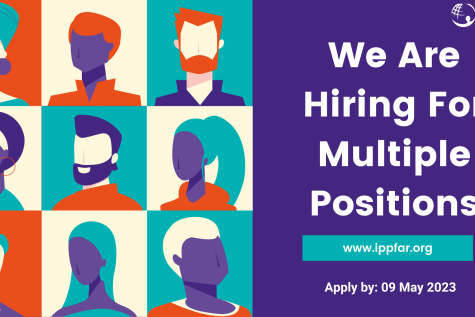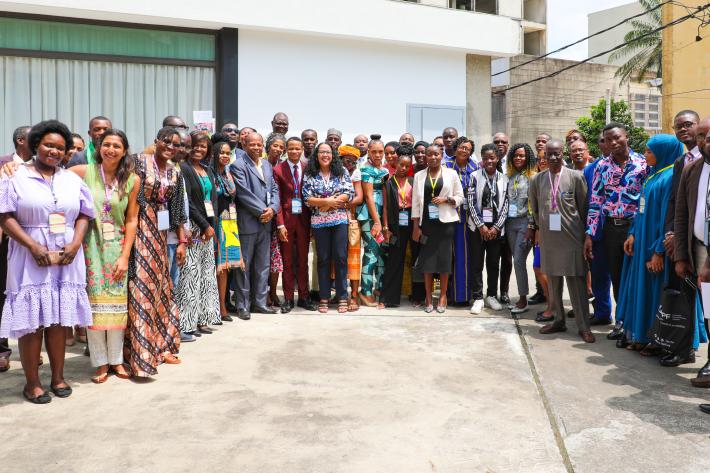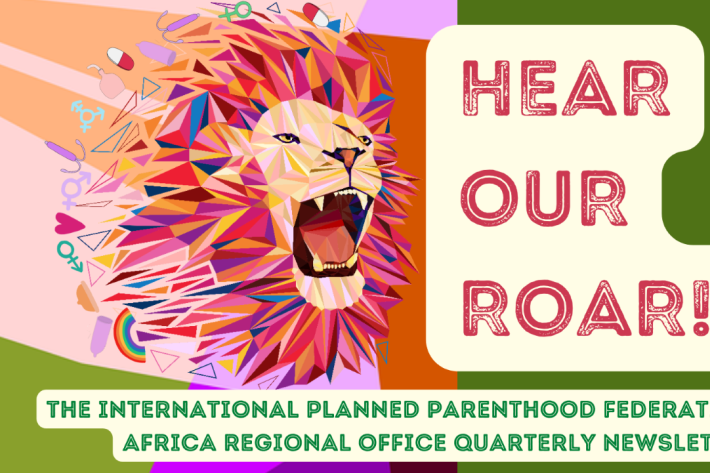
Spotlight
A selection of news from across the Federation

Africa
IPPF Africa Region is seeking talented individuals to support its work
In alignment with its strategy, the IPPF Africa Regional Office is hiring for multiple positions based in Kenya and Côte d'Ivoire.
Filter our news by:


| 28 May 2018
FHOK’s Social Enterprise Model, SMART Care System Lauded by IPPFAR Member Associations
Family Health Options Kenya (FHOK), which is IPPF’s Member Association in Kenya this week played host to a team of Program Directors and Directors of Finance drawn from different Member Associations (MAs) in the Africa region. The Directors are in Nairobi attending a strategic workshop aimed at enhancing their capacity for the improvement of the programmatic, financial and operational management practices of their MAs. During one of their activities, which included the visit to FHOK’s headquarters in Nairobi, the Directors received insights into the different programs that FHOK is currently implementing. With a rich experience spanning over five decades, FHOK is recognized as one of the leading service providers in Sexual Reproductive Health and Rights (SRHR) in Kenya. FHOK has 16 health facilities and 9 youth centers located in different parts of the country. During the learning visit, FHOK shared its experiences in the areas of: clinical services, finance and administration, project implementation, governance, networking, building partnerships, advocacy and human resource. Some of the projects that FHOK is currently implementing include those around the integration of SRHR issues with environmental stability and climate change, mitigating the impact of the Global Gag Rule (GGR) through the social enterprise model, and innovative youth programmes that target both in-school and out-of-school youth. The Directors also toured FHOK’s Nairobi West Family Care Medical Center & Maternity. The center, started in 1999, operates on a 24-hour basis and offers a wide range of in and out-patient services. They include: counselling, family planning, STI treatment and management, HIV services, pre-nantal and post-natal care, maternity services, well baby clinics, gynaecological services, curative services and specialist clinics, among others. The medical center has a well-stocked pharmacy and a well-equipped laboratory. The visiting Directors lauded FHOK for its innovative projects and passion for serving the Kenyan population with quality health services. “Indeed, there is a lot to learn from FHOK. Their intense resource mobilization efforts, that have resulted in funding for several projects is impressive. This is something that other MAs should emulate,” said Mr. Desta Kebede, Program Director at Family Guidance Association of Ethiopia (FGAE). “There is also plenty to learn from FHOK’s social enterprise model, which is fueled by the organization’s desire to shift its focus from traditional revenue streams -to that of using different entrepreneurial methods to create social impact,” he added. The Directors also commended FHOK for its electronic data management system -SMART Care. This is a system that has helped the organization effectively manage its operations such as in logistics, where it is able to use data to forecast and manage commodities. The use of SMART Care has helped the MA avoid cases of stock-outs. The paperless SMART Care system has also benefitted FHOK in the integration of finances and statistics, as well as in the management of human resources at clinic level. “SMART Care has significantly reduced the workload of our service providers when it comes to capturing of essential data in real time, and consequent generation of reports. Through SMART Care, consumer specific reports -MoH, FHOK, IPPF and donor reports are readily generated at the end of each month by our health personnel within a very short time. The system has gone a long way in ensuring quality data and enhancing compliance to reporting timelines within FHOK,” said Ms. Esther Muketo, Director, Resource Mobilization at FHOK. FHOK is also recognized as one of IPPFAR’s Learning Centers. IPPFAR’s Learning Center Initiative (LCI) is aimed at building capacity through its Member Association network by developing and sharing innovative and best practice approaches on Sexual Reproductive Health (SRH). Learning Centers such as FHOK are regarded as centers of excellence, technical hubs and technical advisory facilities. They assist in the cementing and positioning IPPFAR as a leading service provider in Sexual Reproductive Health and Rights (SRHR). Story by Maryanne W. Waweru, Governance and Compliance Officer, IPPF Africa Region. For more information about the work of IPPF Africa Region, connect with us on Facebook and Twitter.

| 16 February 2018
Female Genital Mutilation is an Affront to the Gains Made in Human Rights
Despite the numerous global, regional and national protocols and legislative instruments to abolish female genital mutilation (FGM), the cruel and inhuman practice is still widely practiced by many traditional communities in Sub-Saharan Africa as a right for passage for girls. The United Nations estimates that he outmoded and life threatening customary practice affects at least 200 million young girls and women globally; many of whom are in Sub-Saharan Africa. According to the UN Women, in Somalia, Guinea and Djibouti, 98%, 97% and 93% respectively of women aged 15 to 49 have undergone FGM. Apart from abusing the rights of women, the crude way of performing the practice, endangers the reproductive health of thousands of young girls who are forced to go through it. In many instances the extent of mutilation affects the physical well-being and the health of the victims. The psychological trauma associated with the practice, affects the self-esteem and dignity of those who are forced into it. The call by the AU to Harness the Demographic Dividend for the socio-economic development of Africa would become a mirage if the future of young girls and women are destroyed through FGM. The time has come to establish more humane and better systems to prepare young girls to graduate into womanhood. In this way, a critical mass of assertive and critical thinkers of a new generation of women would be created to contribute towards achieving the African Union (AU) Agenda 2063 and the Sustainable Development Goals (SDGs). As the International Planned Parenthood Federation Africa Region (IPPFAR), we take the stand that FGM must be purged! It has no health benefits to women but only harm. It erodes the gains we have made in Human Rights over the years. As the leading voice of sexual reproductive health rights in sub-Saharan Africa, we speak for the voiceless girls and young women who suffer this injustice. This practice combined with the conflicts, child marriage and teenage pregnancy specifically affects girls and young women. This brings a unique yet precarious destruction of basic human rights to health. This is why we need to be the champions in protecting their right to health and their access quality health services. The International Planned Parenthood Federation Africa Region (IPPFAR), wishes to reiterate the need for complete and total abolishing of the practice. As the leading voice of sexual and reproductive health rights (SRHR) in Sub-Saharan Africa, we speak for the voiceless girls and young women who suffer this injustice. IPPFAR is committed towards ensuring the achievement of SDGs 3 and 5 – Universal Access to Health and Gender Equality respectively. Through our Member Associations in 42 Sub-Saharan countries, we will safeguard, defend and promote SRHR. As world celebrates the International Day of Zero Tolerance for FGM, we call on the international community, governments, civil society organisations (CSOs) and state actors to come together to protect the rights of girls and women. With purpose of unity and dedication, the practice of FGM will be eliminated to save the lives and restore the dignity of millions of girls and women, particularly in Sub-Saharan Africa. Lucien Koukou, Regional Director – IPPFAR for International Day of Zero Tolerance to FGM











